The first in a series of spinouts from Star targeting biology shared by multiple diseases, Electra is leveraging insights into the SIRP protein family to stop pathogenic myeloid and T cell activity via a clinical-stage lead program, with a series of preclinical assets behind it.
Electra Therapeutics Inc. and its parent company Star Therapeutics both emerged from stealth Feb. 16.
By Karen Tkach Tuzman
True North alums reunite to scale their rare disease mAb playbook through a series of newcos, starting with Electra
The first in a series of spinouts from Star targeting biology shared by multiple diseases, Electra is leveraging insights into the SIRP protein family to stop pathogenic myeloid and T cell activity via a clinical-stage lead program, with a series of preclinical assets behind it.
Electra Therapeutics Inc. and its parent company Star Therapeutics both emerged from stealth Feb. 16. The companies reunite leadership and investors from True North Therapeutics Inc., whose mAb Enjaymo sutimlimab is now marketed by Sanofi (Euronext:SAN; NASDAQ:SNY) for a rare complement-mediated disease after the biotech’s 2017 acquisition by Bioverativ Inc. for $400 million up front and up to $425 million in milestones. Sanofi acquired Bioverativ for $11.6 billion in 2018.
“This is a team that has a proven track record of success,” said Westlake Village Biopartners’ Beth Seidenberg, who cofounded True North during her time at Kleiner Perkins Caulfield & Byers.
Since its founding in 2018, Star has raised over $100 million from Westlake Village BioPartners, OrbiMed, Redmile Group, Cormorant Asset Management, RA Capital, Cowen Healthcare Investments and New Leaf Venture Partners.
Electra separately raised an $84 million series B round from the same investors, co-led by Westlake and OrbiMed; Star was the sole investor in Electra’s undisclosed series A round.
Star’s overarching strategy is to develop home-grown mAbs against targets involved in the pathology of multiple diseases, including rare diseases, and spin them out into newcos that address a particular target family and disease cluster.
Similarly to True North, Star identifies targets by connecting the dots between data in the literature, discussions with physicians and academics, and generation of new data including longitudinal natural history studies, Adam Rosenthal, CEO of Star and Electra, told BioCentury. Rosenthal, who founded Star and is a co-founder of Electra, was CBO at True North and VP and head of corporate development at its parent company iPierian Inc.
The common-target strategy is akin to the molecularly defined, tissue of origin-agnostic approach advancing in cancer. “It’s about finding a common signature of origin,” said Seidenberg. “We don’t have the molecular diagnostics tools in immunology that we have in cancer yet, but it will come of age.”
Electra is testing ELA026, a mAb targeting undisclosed SIRP isoforms, in Phase I studies in both healthy volunteers and patients with secondary hemophagocytic lymphohistiocytosis (sHLH), an inflammatory disease that can trigger splenomegaly and hepatomegaly and lead to organ failure and death.
The company expects its B round will enable it to complete Phase Ib studies of EL026 to treat sHLH, while advancing additional indications for the compound, plus preclinical programs.
While SIRP proteins such are most widely known for the immunological checkpoint activity of SIRPA, which transmits “don’t eat me” signals in myeloid cells, ELA026 doesn’t seek to interfere with that phagocytosis regulating pathway. Rather, by targeting undisclosed SIRP isoforms, the mAb “grabs onto that cell surface anchor and depletes” myeloid and T cells that express it via antibody-mediated cytotoxiciy, Rosenthal said.
Electra has a separate preclinical SIRP-targeting program in development for immunology, and a SIRP-targeting platform for immuno-oncology Rosenthal thinks could be a good fit for pharma partnerships.
Rosenthal said Star’s spinout structure “allows each family of companies to pursue its own financing or BD strategy,” while maintaining collaboration between scientists and sharing certain corporate departments.
He and Seidenberg’s previous experiences spinning out True North from iPierian, which was acquired by Bristol Myers Squibb Co. (NYSE:BMY) in 2014, informed the decision to set up a spinout structure prospectively.
The structure can also be “rolled up” into a single entity, for example before going public, depending on scientific progress and market dynamics, said Seidenberg, citing past experiences with Atara Biotherapeutics Inc. (NASDAQ:ATRA) and Armo BioSciences Inc. “The beauty of the model is you have so much flexibility to follow the science and the technology,” she said.
Joining Rosenthal on Star’s management team are five other True North alumni: CSO Sandip Panicker, CMO Gary Patou, COO Kathy Dong, and EVP and head of regulatory and project management Michelle Carpenter; Jeremy Boucher is VP and head of finance. Star’s next spinout will focus on rare hematological diseases.

